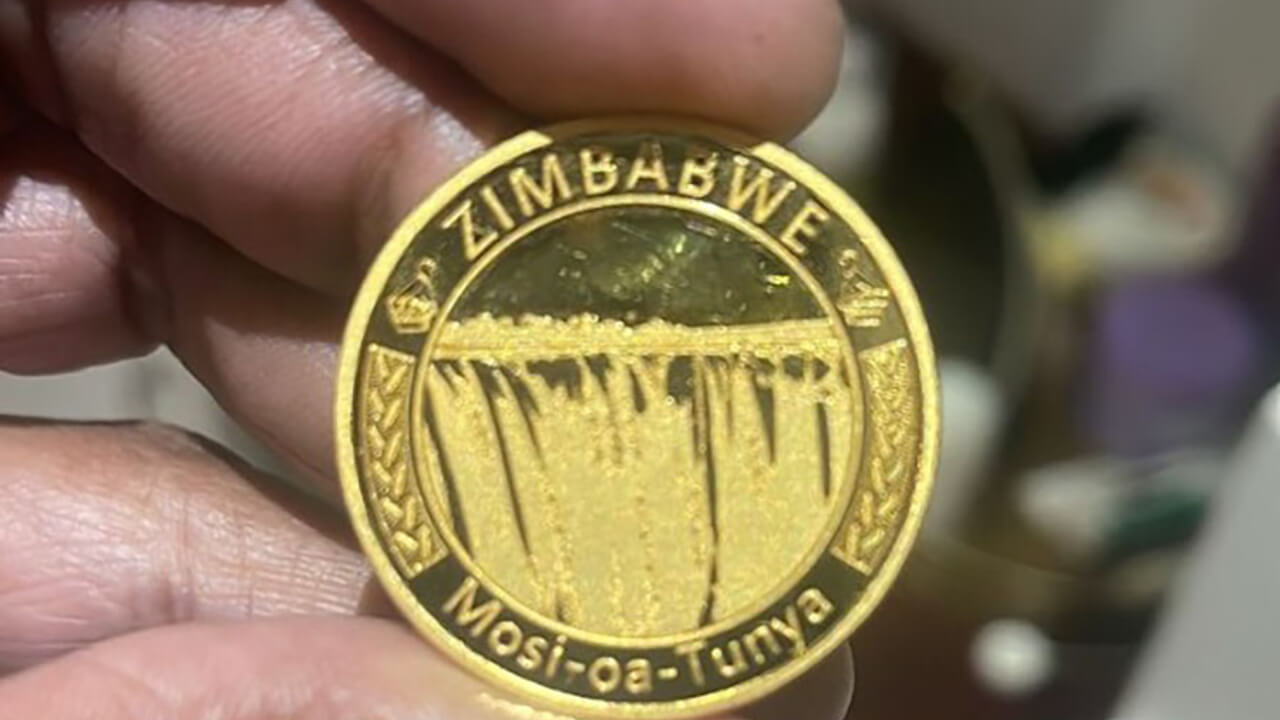No borrowings to buy digital gold tokens: RBZ
THE Reserve Bank of Zimbabwe (RBZ) says investors intending to purchase gold-backed digital tokens to be injected into the market today cannot use borrowings to finance the purchase of tokenised gold coins.
The central bank’s Financial Intelligence Unit (FIU) has been mandated to keep a hawk’s eye and take appropriate action in respect of any suspicious sources of funding. The gold-backed digital tokens offer opens today and closes on Wednesday. Payments are scheduled for Thursday and the issuance date for the tokens is set for Friday.
“Investors cannot use borrowings to finance the purchase of tokenised gold coins. The Financial Intelligence Unit shall take appropriate action in respect of any suspicious sources of funding,” said the Apex Bank.
“Financial institutions are required to exercise Know Your Customer (KYC) principles,” reads part of the notice by RBZ.
The Central Bank said the digital tokens will be issued in milligrams, which is one thousandth of a gram, through custodian banks within the Central Securities Depository (CSD) payment system.
“Applications for the RBZ Gold-Backed Digital Tokens must be for a minimum of US$10 for individuals and US$5 000 for financial institutions, corporates, and other entities,” it said.
“Application forms are available from RBZ, commercial banks, building societies and the People’s Own Savings Bank (POSB). Completed application forms should be submitted through commercial banks, building societies and the POSB.”
Reserve Bank of Zimbabwe (RBZ) Governor Dr John Mangudya has said the digital gold tokens are expected assist in stabilising the local currency by acting as a viable alternative store of value and helping facilitate transactions for ordinary people.
This comes at a time when the local currency has been losing value against the US dollar on the parallel market in the past month, a development that has had the adverse impact of pushing up prices of basic commodities.
The Apex Bank believes the decline in value of the local unit is being driven by “unlimited demand” for the US dollar. However, the digital gold tokens are expected to complement the Mosi-oa-Tunya gold coins in mopping up excess liquidity in the market.
“The tokens function in the same way as the physical gold coins and will work in parallel with the physical gold coins introduced last year to mop up excess liquidity, reduce demand for the US dollar as a store of value and stop depreciation of the local currency,” Dr Mangudya told our Harare Bureau.
Dr John Mangudya
The digital tokens, which will be issued in milligrammes, will be available for sale at banks in both foreign and local currency, with dedicated or specific accounts such as e-gold wallets or e-gold cards for holding the assets. Dr Mangudya also expects the tokens to help Government’s drive to promote financial inclusion.
“The purpose is threefold, as it seeks to save, invest and be for transacting purposes, with one having the option to buy the digital gold coins in foreign currency or in local currency. The digital gold tokens have the same characteristics as the physical gold coins; the vesting period of 180 days is the same and will act as a store of value, among other things,” added Dr Mangudya.
The gold-backed digital tokens just like the gold coins have a vesting period of 180 days and can be redeemed afterward based on the international gold price as determined by the London Bullion Market Association (LBMA) PM fix payable in either local or foreign currency.
The gold-backed digital tokens are meant to expand the value-preserving instruments already available to stabilise the economy.
The gold-backed digital tokens follow the successful injection of Mosi-oa-Tunya gold coins in July last year, which started with higher-denominations and later followed up by smaller denominations in November due to high demand in the market.
The central bank said gold-backed digital tokens will have prescribed asset status and liquid asset status and be accepted as collateral and tradable. Settlement will be done in local or foreign currency.
The issuance will be in a two-phased approach. The tokens will be available for sale through banks in both foreign currency and Zimbabwe dollar. The pricing of the gold-backed digital tokens in foreign currency shall remain the same as the pricing model of the physical gold coins as informed or guided by the international gold price as determined by the London Bullion Market Association (LBMA), said the RBZ.
It added that payment for the gold-backed digital tokens or physical gold coins in Zimbabwe dollar shall remain at 20 percent margin above the willing-buyer willing-seller interbank mid-rate.
Banks are expected to create dedicated or specific accounts for the holding of gold-backed digital tokens (e-gold wallets or e-gold cards).
Holders of physical gold coins, at their discretion, will be able to exchange or convert, through the banking system, the physical gold coins into gold-backed digital tokens.-chronicle.co.zw











